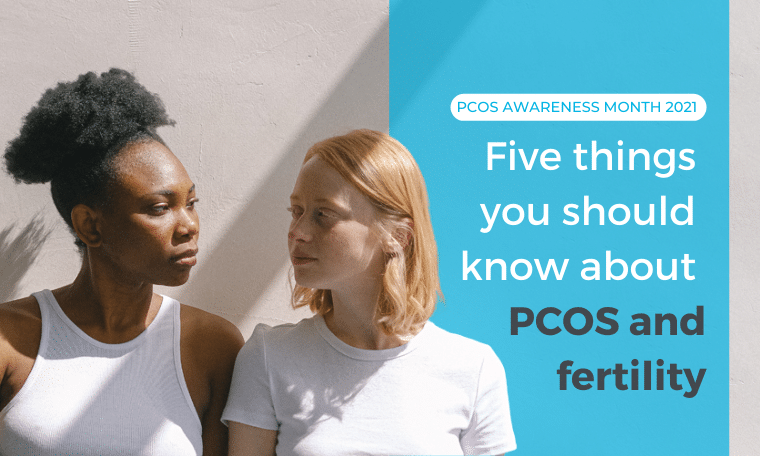
As we mark Polycystic Ovary Syndrome (PCOS) Awareness Month, we want to touch base with all of you who may be impacted by this condition while trying for a baby. With the ability to affect not only your fertility, but also your mental health, self-esteem, and general health, being informed is critical to move forward on your journey towards parenthood.
What is PCOS and how does it impact my fertility?
PCOS is a condition that occurs as a consequence of disorder within the endocrine system and affects about 10% to 20% of women of reproductive age in Australia.
The hormonal disorder commonly impacts the frequency of menstrual periods and ovulation while increasing androgen levels. Since irregular cycles are the reason why women with PCOS may have issues with their fertility, this chronic condition is responsible for almost 70% of infertility cases where anovulation is concerned. In light of this, an early diagnosis and medical management is critical to protecting the health and wellbeing of women diagnosed.
However, diagnosis of the disorder can be difficult to achieve leaving an approximate 70% of people with PCOS undiagnosed and without treatment or intervention.
What symptoms should I be on the lookout for?
When looking for symptoms of PCOS, there are a myriad of things to keep an eye out for. This may include, but are not limited to, the following:
- Infrequent menstruation and ovulation
- Hirsutism (excessive hair growth especially on the abdomen, back, chest, thighs, and face)
- Acne and oily skin, which can be caused by excessive androgen levels
- Weight gain, which impacts around 80% of those with PCOS
- Patches of dark, thickened skin known as acanthosis nigricans
- Fluid filled sacs on the ovaries (evident through medical imaging, often a transvaginal ultrasound)
- Infertility
A diagnosis of PCOS must be made by a medical professional, generally your GP, and can be determined when a minimum of two of the following symptoms are present:
- Infrequent menstrual periods – this may mean the periods are few and far between or rather close and prolonged.
- Excessive androgen levels – the elevation of this hormone can entail a selection of physical signs including hirsutism and acne/oily skin.
- Polycystic ovaries – the function of the ovaries is often hindered due to enlargement of the organ or clusters of follicles surrounding the eggs.
What are the causes?
At present, there is no single and finite cause of PCOS, rather several factors which may contribute to inducing the condition. These include:
- Genetics
- Elevated insulin and/or insulin resistance
- Inflammation
- Excessive androgen
- Weight/obesity
How does it exactly impact my fertility?
It’s recognised that where anovulation is present (no egg is released for ovulation), PCOS is often the root of the cause for the infertility. As the condition directly impacts the function of the ovaries, and subsequently the regular and unrestricted release of eggs, fertility is often impacted prohibiting natural conception.
To aid regular ovulation and conception, there is medication called metformin available. By using this drug, those with PCOS can have ovulation return to a normal frequency, in turn boosting the chances of natural conception.
It’s vital to keep in mind that a diagnosis of PCOS does not mean that natural conception is impossible, but rather those with the condition should be understanding that they may require assistance to start their family.
What are my treatment options?
To treat PCOS and minimise the symptoms, there’s a variety of things that can be tried which may aid in achieving natural conception. Some ways you may improve your PCOS symptoms may include the following:
- Weight loss can help achieve a BMI that is ideal for pregnancy, this can be accomplished through healthy eating and exercise teamed with guidance from a health professional.
- Ensure your blood sugar levels are balanced.
- Appropriate medications including metformin and clomid to assist insulin and estrogen levels respectively.
- Track ovulation and menstrual cycles.
- Surgery may assist in returning proper function to the ovaries, this is known as laparoscopic ovarian drilling.
If you want to learn more about your PCOS and discuss treatment options, please feel encouraged to contact our friendly fertility advice team on 1800 111 373 or book an appointment at your leisure.